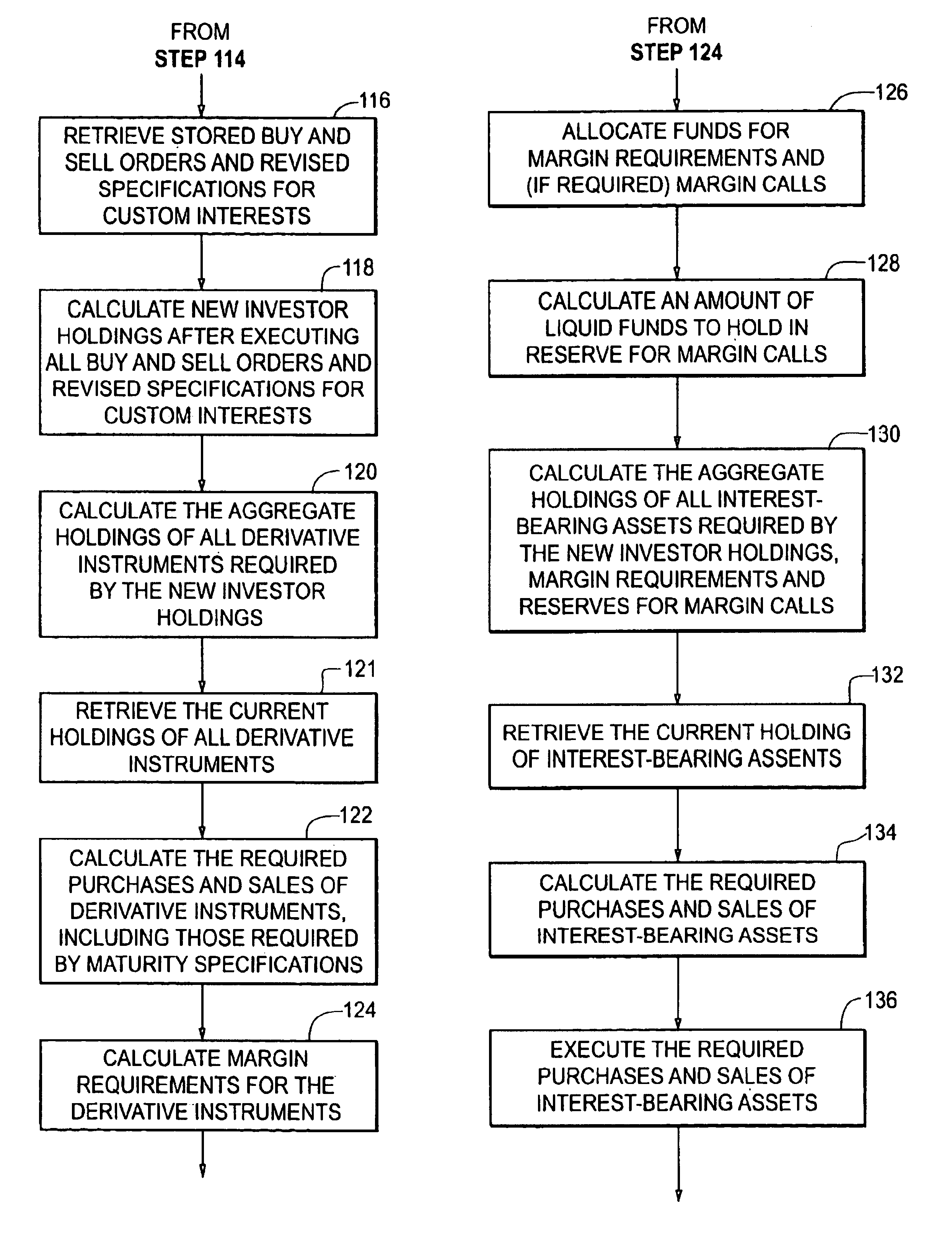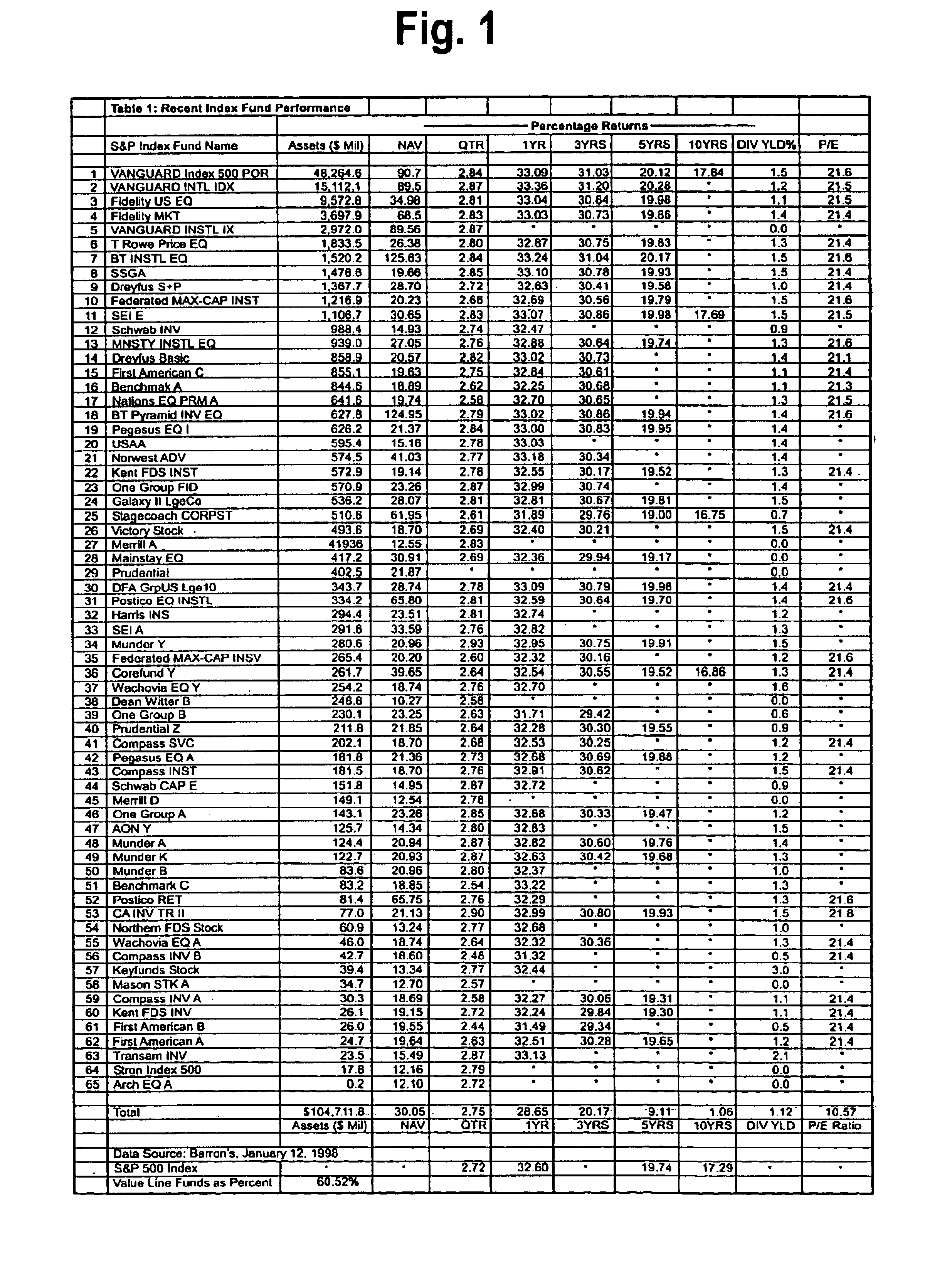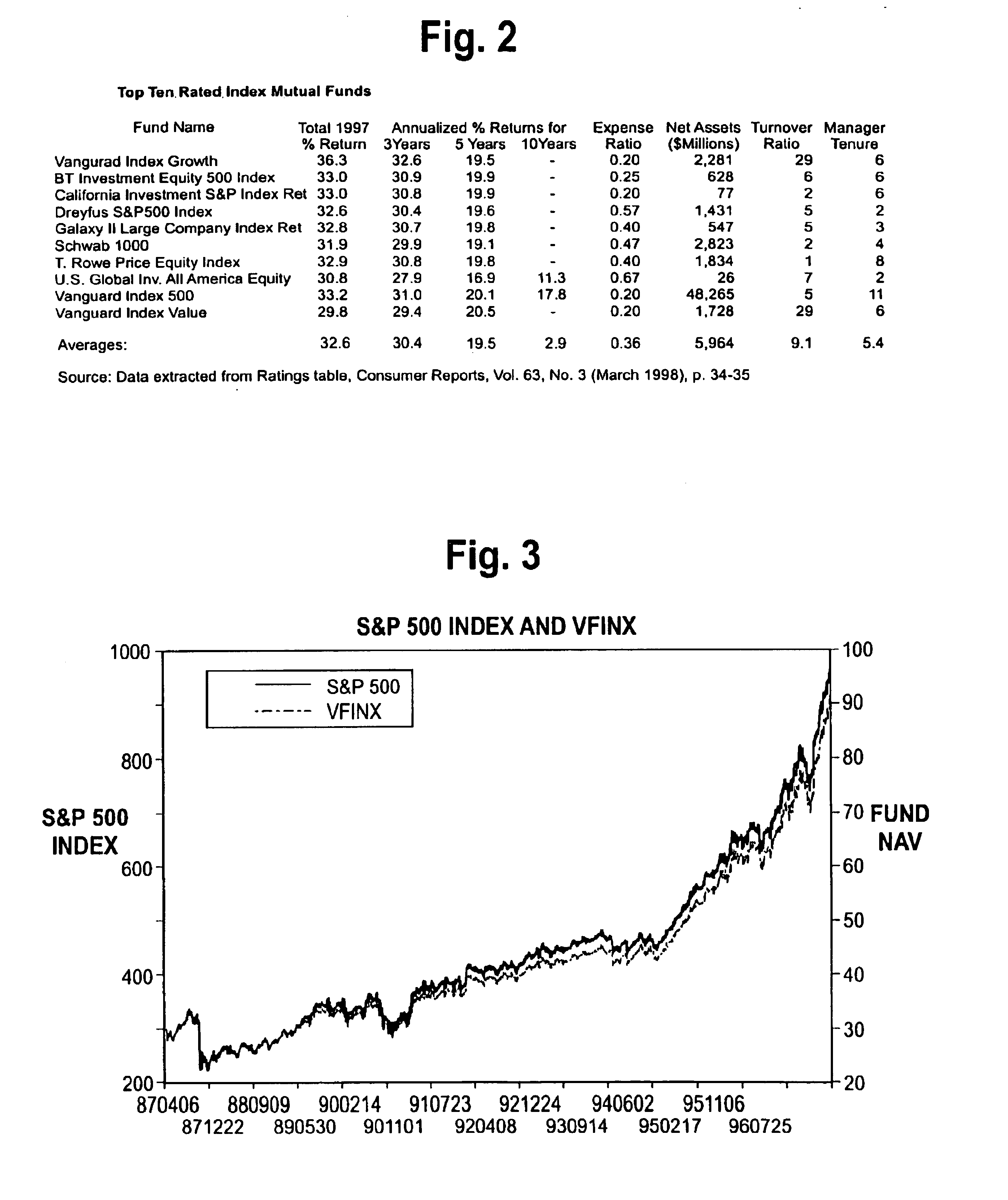However, effective use of synthetic investment and risk management products has been largely restricted to very large financial institutions and corporations because of the large contract sizes typical of synthetic products and the degree of sophistication required for their effective use.
75-87) that have addressed the creation of superior investment performance using synthetic products, but none have considered the issues involved in creating efficient, computer-managed funds for synthetic investment and risk management products that will make these products available to a broader market.
However, even the most efficient stock index funds face transactions costs, management costs and tracking errors that prevent them from actually delivering performance that matches their chosen market index.
Present stock index funds suffer from significant transactions costs because of their need to constantly adjust their holdings of a large number of stocks in order to maintain a portfolio that accurately reflects the performance of the stock index that the fund managers are attempting replicate with their investment fund.
However, differences between the tracking portfolio and the specified index may cause the performance of the index fund to deviate somewhat from the index that the fund is seeking to track and the past performance of tracking portfolio relative to the index does not guarantee its future performance.
Also, the tracking portfolios still contain large numbers of stocks (although significantly less than the number of stocks in the index) and, as a result, transactions costs remain significant.
The transactions costs significantly increase when a stock index fund is attempting to track an international index or indexes.
Foreign stock markets are less liquid and have higher transaction costs relative to U.S. markets.
In addition, many foreign governments add significantly to the costs of index funds holding their stocks by imposing transfer taxes and / or dividend withholding taxes on foreign holders of their equities.
This is a growing problem for stock index funds as more and more investors realize that global market performance is the true investment benchmark in our global economy.
Stock index funds face a significant management, cost and risk problem when, as often occurs, a stock is removed from the market index being tracked and is replaced by a new stock.
Because traders and other investors know which stock the index fund managers must sell and which they must buy and when, it is difficult for the index fund managers to execute the trades without receiving an abnormally low price for the stock being sold and paying an abnormally high price for the stock being purchased, thus negatively impacting their investment performance.
Another problem with present index funds, for taxable investors, is the creation of unrealized capital gains that may build up in large amounts before being realized as a result of the transactions required to track the index.
Investors in the fund do not know the amount or the timing of the capital gains that may result from the realization of these embedded capital gains as a result of the transactions necessary to track the index.
In addition to making tax planning difficult for taxable investors, the realization of these embedded gains can create tax liabilities for gains that actually occurred before the investor purchased the fund, thus causing the investor to owe tax on gains that the investor earned.
In addition, computer-managed synthetic index funds can offer investors limit orders and the ability to trade at any time during the day—neither of which are possible when investors trade shares in conventional stock index funds.
 Login to View More
Login to View More  Login to View More
Login to View More 


